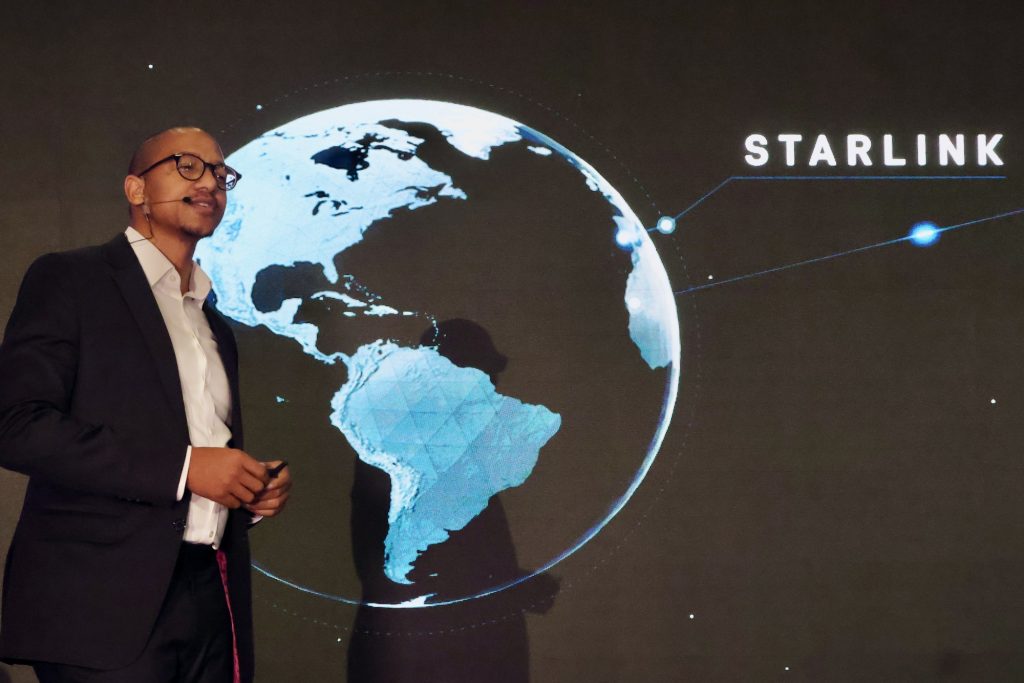Physical Address
60 Ekwema Cres, Layout 460281, Imo
Physical Address
60 Ekwema Cres, Layout 460281, Imo

Starlink, the satellite internet service run by Elon Musk’s SpaceX, has officially kicked off internet service in Lesotho, marking a significant step in the country’s effort to improve digital connectivity. This launch follows the granting of a 10-year operating licence on April 14, 2025, by Lesotho’s communications regulator, the Lesotho Communications Authority (LCA). The licence allows Starlink to provide high-speed, low-latency internet access throughout the mountainous southern African nation.
Lesotho’s adoption of Starlink comes just two months after receiving regulatory approval, showing the country’s urgency to enhance internet access. With only 47% internet penetration, Lesotho’s rugged terrain has made it difficult for traditional internet infrastructure like fibre and mobile networks to reach many areas. Starlink’s constellation of over 7,600 low Earth orbit (LEO) satellites offers a solution by delivering median download speeds of 70 to 100 Mbps in African markets, which is much faster than many local internet providers.
Read Next: Crypto Firm Luno is Back in Kenya After 2015 Exit
The official launch event took place in Maseru, Lesotho’s capital, where T-Connect Lesotho, an authorised Starlink reseller, began offering services at 16:00 local time. The service targets both urban centres and remote rural areas, aiming to bridge the digital divide in the country.

Starlink’s expansion in Africa began in Nigeria in January 2023 and has since extended to 24 countries, including Kenya, Rwanda, Zambia, Ghana, and now Lesotho. This growth highlights Starlink’s focus on bringing internet access to underserved regions across the continent.
Local internet providers in Lesotho, such as Vodacom Lesotho and Econet Telecom, now face new competition. While these companies have not yet publicly commented on Starlink’s launch, experiences in other African countries suggest traditional providers may respond by lowering prices or seeking partnerships with satellite internet companies to stay competitive.
The pricing for Starlink in Lesotho is expected to be similar to other African countries, with monthly plans ranging from $28 to $50 and hardware costs between $178 and $381. While Starlink offers faster speeds and wider coverage, affordability could be a challenge for many rural users, especially given Lesotho’s 27% poverty rate.
The introduction of Starlink in Lesotho could have a positive impact on the country’s economy. In neighbouring Eswatini, Starlink has helped boost e-commerce, remote education, and telemedicine by providing reliable internet in rural areas. A World Bank study estimates that a 10% increase in internet access can raise GDP growth by 1.4% annually in sub-Saharan Africa. Lesotho, with its similar rural population and economic structure, could see comparable benefits, particularly in sectors like textiles, tourism, and digital financial services.
Read Next: Nigerian Startup Sabi Lays Off 20% of Its Workforce as it Pivots
Despite the promising launch, Starlink faces challenges in Africa, including regulatory delays in some countries and capacity issues in crowded urban centres. However, the official start of Starlink in Lesotho marks a major milestone in expanding internet access to one of the continent’s most difficult-to-connect countries.
Starlink officially kicks off services in Lesotho with a 10-year licence, bringing high-speed satellite internet to both cities and remote areas. This launch is expected to transform Lesotho’s digital landscape, offering faster internet, new economic opportunities, and greater inclusion for its people.
Was this information useful? Drop a nice comment below. You can also check out other useful contents by following us on X/Twitter @siliconafritech, Instagram @Siliconafricatech, or Facebook @SiliconAfrica.